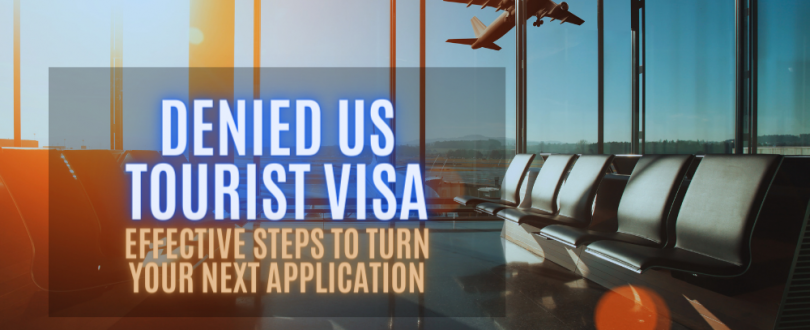
Have you experienced a denial of your US tourist visa application? It’s a common setback that can be discouraging, but it’s important to remember that denial isn’t the end of your travel aspirations. Understanding why your application was denied and how to address these issues effectively can greatly improve your chances for future success. This blog post provides a detailed walkthrough of the steps you should take following a visa denial, aimed at enhancing your prospects for a positive outcome on reapplication.
Understanding Your Visa Denial
Understanding the specific reasons for your visa denial is critical. The denial letter from the US Embassy or Consulate will specify under which section of the immigration law your application was denied. Common reasons include:
– Insufficient Ties to Home Country: You may not have convincingly shown that your ties to your home country will bring you back after your visit.
– Inadequate Financial Proof: You failed to adequately demonstrate your financial ability to support yourself during your stay in the US.
Review the Denial Letter
The denial letter is key to your next steps. It will reference specific sections of the law, most commonly:
– Section 214(b): Indicates that the consular officer was not convinced of your intent to return home after your visit.
– Section 221(g): Suggests that your application was incomplete, or additional documentation is needed.
Understanding these references will guide your strategy for reapplication.

Short-Term Actions to Take
Immediate steps following a denial are crucial:
– Seek Clarification: Contacting the embassy or consulate directly can provide valuable insights into the specific reasons for your visa denial.
– Document Gathering: If the issue is missing or insufficient documentation, start collecting the necessary documents immediately.
Reassessing Your Application
Carefully review your application to identify any potential weaknesses:
– Strengthen Ties: Include additional documents such as employment letters, proof of property ownership, or family ties that compel you to return home.
– Improve Financial Documentation: Provide comprehensive financial evidence, like updated bank statements, employment verification, and proof of income or assets.
Considering a New Application
Before reapplying, consider the following:
– Timing: Adhere to any waiting periods recommended by the embassy and use this time to strengthen your application.
– New Information: Address previous shortcomings and include any new information or changes in your circumstances that support your application.
Alternative Visa Options
Explore other visa categories if repeatedly denied a tourist visa:
– Business Visa (B1): Appropriate if your visit involves business activities.
– Cultural or Exchange Visas (J1, Q1): Suitable for participating in exchange programs that involve cultural activities or educational exchanges.
Legal Consultation
Consulting with an immigration attorney can provide significant benefits, especially if your case involves complex legal issues or prior immigration violations. They can provide personalized guidance and help you navigate the complex landscape of US immigration law.
Long-Term Considerations
To improve future applications:
– Build a Solid Travel History: Demonstrate a history of compliance with international visa regulations by traveling to other countries and returning to your home country as promised.
– Maintain Detailed Financial Records: Keep your financial records thorough and up-to-date to substantiate your economic stability in future applications.
A US tourist visa denial is a challenge, but with proper preparation and understanding, it can be overcome. By carefully analyzing the reasons for your denial, addressing these issues, and exploring all available options, you can enhance your chances of securing a visa in the future.
At GovAssist, we specialize in assisting travelers to navigate the complexities of visa applications, including dealing with denials. Our experts provide tailored support, from document preparation to strategic advice for interviews, ensuring that your application stands the best chance of success. Visit Visahelp today to learn how we can help you achieve your travel goals to the United States.

